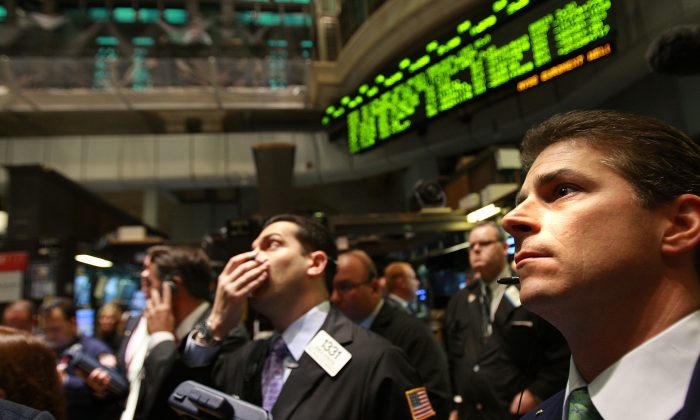A couple of years ago, I wrote a piece showing how the world of 1991 was still very much with us today. And if you ignore the bit where I confidently predicted a second Clinton would sit in the Oval Office, the comparisons between 1991 and the late 2010s hold up reasonably well.
This week, the US political scene has witnessed the spectacle of a presidential nominee to the Supreme Court being accused of sexual misconduct, the brave testimony of his accuser, and a combative response of the potential justice.. The parallels to 1991 apparently aren't done yet.
In the summer of that year, the first African American Supreme Court justice, Thurgood Marshall, was retiring. In his place, George HW Bush nominated Clarence Thomas, another African American, who had been an official in the Reagan and Bush administrations, as well as a federal judge. Yet Thomas provoked panic and fear amongst those on the left. He was a strident conservative, and many liberals promised they would fight his nomination in the last ditch. The battle lines were drawn for his confirmation hearings.
Hearings before the Senate Judiciary Committee were not to be treated lightly. It was only four years since the same committee, headed by the same senator, a Joe Biden of Delaware, had sunk the nomination of Robert Bork. Bork had been chosen by Reagan for his impeccable conservative credentials. Yet during his hearings Bork floundered, as his conservative views came under attack for being too extreme, as did his role in the Saturday Night Massacre of 1973, when Bork had been the highest ranking Justice Department official to survive Richard Nixon's cull, the one who had fired the Watergate special prosecutor for Nixon. Bork was rejected by the committee, and later voted down by the full senate.
Despite the concerns over Thomas' views, and the power of the hearings, during the autumn of 1991 his nomination wound its way through the hearings. Towards the end of the process, a bomb was detonated under this orderly process. The media leaked that the FBI background checks on Thomas had thrown up reports that Thomas had made unwanted, sexually inappropriate remarks to a colleague, Anita Hill. Hill, now a law professor at the University of Oklahoma, was called before the committee to give evidence. What evidence she gave. The US public were treated to comments about the size of Thomas' penis, comments about pubic hair, about how long Thomas could last in bed, about Thomas' favourite porn stars.
But Thomas wasn't going down without a fight. In his own testimony, he denied everything, and claimed he was the subject of a "lynching." As a black man, the language was emotional, and designed to hit home.
It did the trick, but barely. The Judiciary Committee sent Thomas' name to the full Senate without a recommendation to accept or reject, a very rare move. Thomas was confirmed by the full Senate with 52 votes to 48, and not along party lines either. Some Democrats supported Thomas, while some Republicans tried to stop him taking office. But take office he did.
It is easy to see the parallels between the two events. In both 1991 and 2018, an extremely conservative choice to sit on the US Supreme Court fired up opposition to his confirmation. Liberal activists and interest groups draw a line in the sand. As the hearings come to a close, allegations of sexual misconduct emerge. They culminate in a dramatic showdown before the Senate, with accuser and defender both fighting for their lives and pouring out their souls.
However, there are two major differences between the hearings of 1991, and the hearings of 2018. Firstly, in 1991, Hill was questioned by the full committee. The optics, and the message they sent, were awful. An all male, all white, mainly elderly, committee, fired questions at the young black woman in front of them, some of them questions of an extremely explicit nature. The outrage at how Hill was treated bled into the 1992 general election. Bush was not re-elected, and a record number of women were swept into office. The Republican party have clearly taken this message on board. The mixed gender, mixed racial Democratic team on the 2018 Judiciary Committee posed their own questions to Brett Kavanaugh's accuser. The all male, all white Republicans of 2018 picked a female prosecutor to field their questions. They do not want to pour oil on the flames of an already difficult election year.
Secondly, in 1991, Anita Hill's lone voice was not enough to stop Clarence Thomas making it onto the Supreme Court. Thomas narrowly survived the process, and remains on the Court to this day, as the longest serving current justice. One reason the Bush White House stuck with Thomas was that opinion polls showed the vast majority of people believed his denials over Anita Hill's claims of sexual harrassment. In 2018, although the process has not yet reached its endgame, Kavanaugh's chances of ending up a Justice of the Supreme Court look less good than Thomas' did at this stage. Because millions of people believe Dr Christine Blasey Ford, his accuser.
I believe her. And you should too. We owe it to the people of 2018 to show that we are not really still living in 1991.
(To help me write this, I drew on this excellent article from the New York Times.
What struck me was how some of the senators who questioned Hill in 1991 are *still* in the same roles, and have apparently learnt nothing...)




